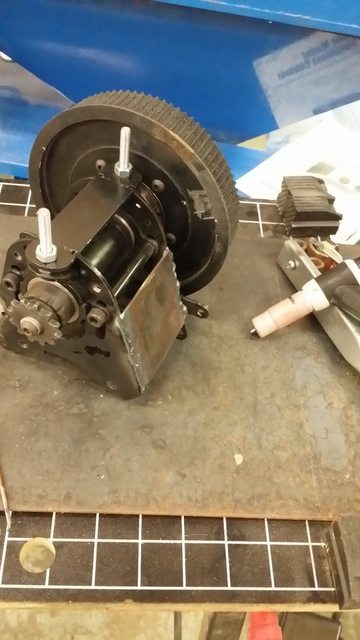he's probably right...officially. i was told a similar thing from the guy who sold me the replacement MAC motors for ecospeed, he said he was surprised ecospeed said they use it for 48v and stated it was made for 36v, when i asked if he could make the same motor, the only spec he was really interested in was max RPM i wanted (he also asked if i could send him a spare ecospeed brackets if they decide to make an entire kit one day, but that's another story) . the person who sold me the BMC motor actually said the exact the same thing about my BMC motor i ordered, ("the bmc motor is only capable of up to 600 watts, if anyone like thesuperkids is saying otherwise they are lieing!") and i'm running it at 2000 watts, even if he said i should run at 1500 tops.
i believe solely relying on volts and watts as a spec is a mistake. nobody takes it seriously, i mean they probably know we all over drive their motors so why should they take seriously. how could you really test if a motor is up to 36v600 watts? what's the time frame (how long should it run)? what's the load? running temperature? etc..
for example we at our company are running stress test on our system, and we keep discover and re-define the test parameters ,and that's a system that stops baby theft in hospitals!
i'm pretty sure that in order to get exactly what you need from them (or the closest) you need specify a lot more then that, like give me a motor size x, with y number of windings, which are z thick, made with C type magnet at width W, etc.. etc.. i mean they won't open up a new line for you (not at the bulk l-R wants) , but they would be able to give the closest spec they have, and that's the one you should sink you hooks into. these are the specs you can examine without any interpretation.







